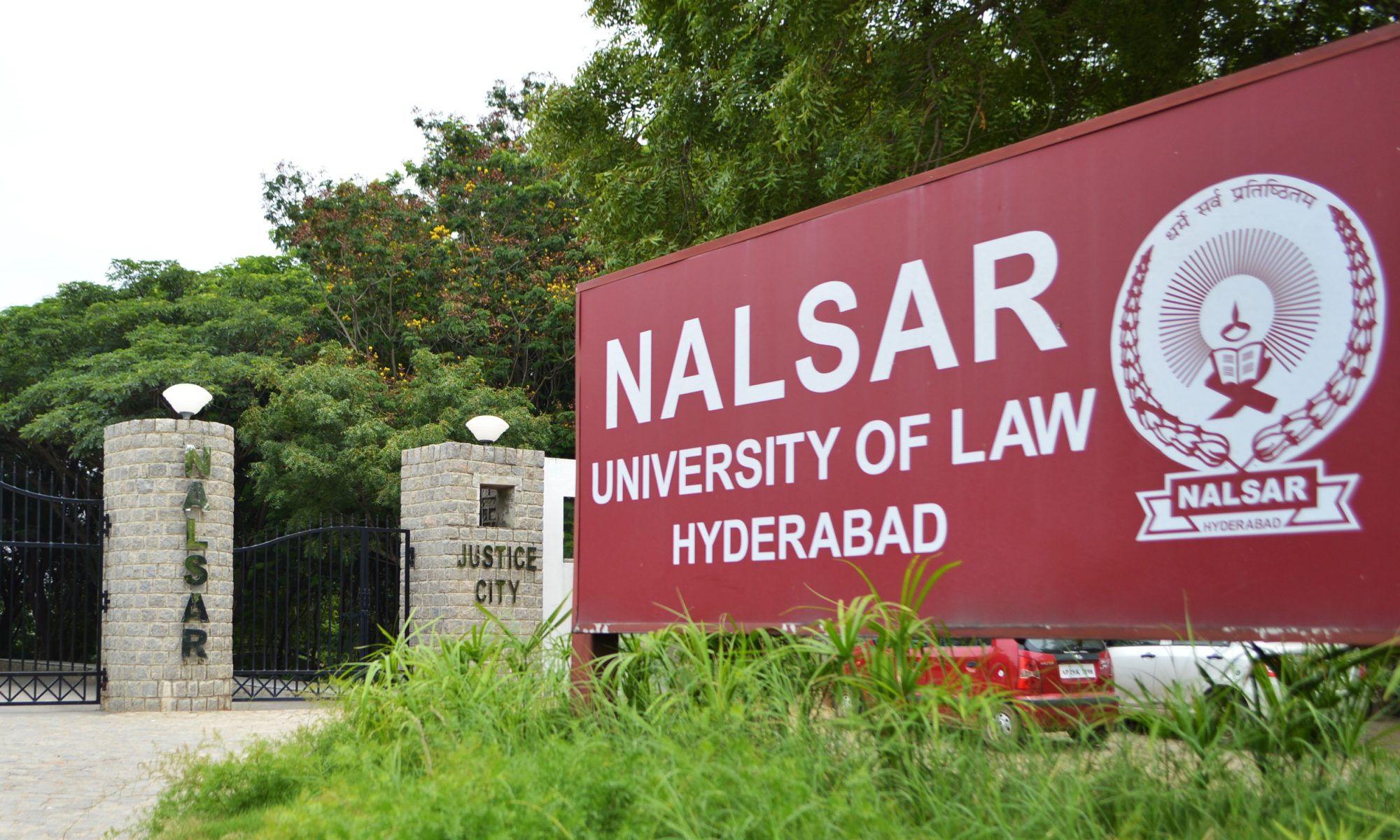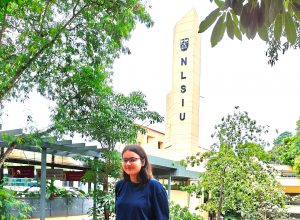Know Your Law School – NALSAR Hyderabad
Embarking on your legal education journey is exciting yet daunting. Understanding the unique characteristics, specialties, and resources of different law schools is crucial for shaping your career path. “Know Your Law School” provides insightful guidance and information to help prospective students make informed decisions about their legal education, ensuring they find the best fit to achieve their professional aspirations.
NALSAR University of Law, Hyderabad
About:
NALSAR University of Law was established by Act 34 of 1998 with the objective of imparting comprehensive legal education while promoting cultural, legal and ethical values so as to foster the rule of law. The University is committed to ensure the highest quality in imparting legal education and undertaking research on contemporary areas in order to produce socially relevant lawyers. The University also has the mandate to promote legal awareness in the community for achieving social and economic justice and to improve the ability of the public to objectively analyse contemporary issues of collective concern, specifically by assessing their legal implications.
NALSAR is recognized under Sections 2(f) and 12B of the UGC Act, 1956. It has been repeatedly acknowledged as one of the leading sites of legal education in the South Asian region, with its academic standards being comparable to the best institutions of legal education in the world. In recognition of the same, the National Assessment and Accreditation Council (NAAC) awarded it ‘A’ grade (‘A++’ as per new grading system) with a high score of 3.60 out of 4.00, which till date is the highest among the National Law Universities (NLUs). NALSAR has also been graded as a ‘Category-I University’ by the UGC under the Categorization of Universities (only) for Grant of Graded Autonomy Regulations, 2018. It has been ranked as the third best institution for legal education in India as per the NIRF Rankings published by the Ministry of Education, Government of India, for 2018, 2019, 2020, 2021 and 2023 respectively.
NALSAR provides a platform for all-round development of the students and encourages students to evolve as demonstrative leaders. The student groups are encouraged not only to participate in various curricular and co-curricular activities but also to organize a number of events which supplement their course work. In addition to the elected committees that are part of the Student Bar Council (SBC), there are several student-run groups such as the ‘Public Policy Group’, ‘Lecture Series on Constitutionalism’, ‘Nyaya Forum on Courtroom Lawyering’, ‘NALSAR Legal Aid Group’, ‘Savitribai Phule Intersectional Studies Circle’ and the ‘Technology Law Forum’ among other which are presently active.
Collaborations with Foreign Universities:
In recognition of the increasing importance of comparative and international dimensions of higher education, the University has signed Memorandums of Understanding (MoUs) with more than 30 foreign Universities located in the United States of America, Canada, United Kingdom, Germany, Switzerland, Australia, Israel, The Netherlands, Singapore, Brunei and Spain. These MoUs provide for the exchange of faculty members and students as well as the pursuit of collaborative research projects. These partnerships enable our students to develop a rich understanding of cultures from other parts of the world and consequently enhance the quality of discussions and scholarship at NALSAR. Approximately 20-25 students get the opportunity to study at foreign universities in every academic year.
Faculty:
NALSAR has a team of highly dedicated and competent faculty, comprising of a good mix of experienced scholars and young talent. The faculty has been drawn from prestigious national and international universities. Additionally, NALSAR has an ‘open-door’ policy for its alumni to supplement the teaching efforts of its faculty. In addition to teaching, faculty members are engaged in various research projects that are on the cutting edge issues of law and policy reform.
Facilities:
The campus is spread over 50 acres and is located 26 kilometers away from the city of Hyderabad. Students are provided with double occupancy rooms in the Halls of Residence with a common Dining Hall facility. Subject to availability, some single rooms may be allotted to senior students. The Halls of Residence have common room facilities including a functional Gym, provision for Indoor Games, Badminton courts and Television. The campus is Wi-Fi enabled with State of Art internet architecture with minimum dedicated broadband speed of 20 Mbps which supports 4G video calling. The Library has a rich collection of books, journals (printed and electronic) and e-databases. NALSAR also has a state-of-art Moot Court Hall, video conferencing facilities, a football stadium, two tennis courts, and separate basketball and volleyball courts for boys and girls. All buildings, including the Halls of Residence, are powered with diesel generators for twenty-four hour power back-up. The University has a Health Centre with Medical Officers, Dentist and three Resident Nurses along with one Lab Technician. In addition, the University has a Counseling Centre with two Counselors available online and offline. The university has recently upgraded several classrooms with the state-of-the-art digital infrastructure so that both physical and hybrid classes can be conducted in an inclusive and efficient manner. This infrastructure will be used to deliver regular classes as well as for distance education programmes.
5-Year B.A., LL.B. (Hons.):
The 5-year integrated B.A., LL.B. (Hons.) programme is on offer for persons who have successfully completed 12 years of school education. To complete it, students are required to accumulate 200 credits through a combination of mandatory and optional courses. Foundational courses in History, Political Science, Economics, Sociology and English have to be completed within the first two years of study. In addition, students are required to earn nine credits by choosing from a vibrant list of social science seminars offered by full-time and visiting faculty members. All the law courses that the Bar Council of India (BCI) requires to be compulsorily pursued have been designated as mandatory courses. In addition to these, the University has designated ‘Law and Poverty’ and ‘Law of Intellectual Property’ as mandatory courses.
Kindly visit University website www.nalsar.ac.in for more details.




